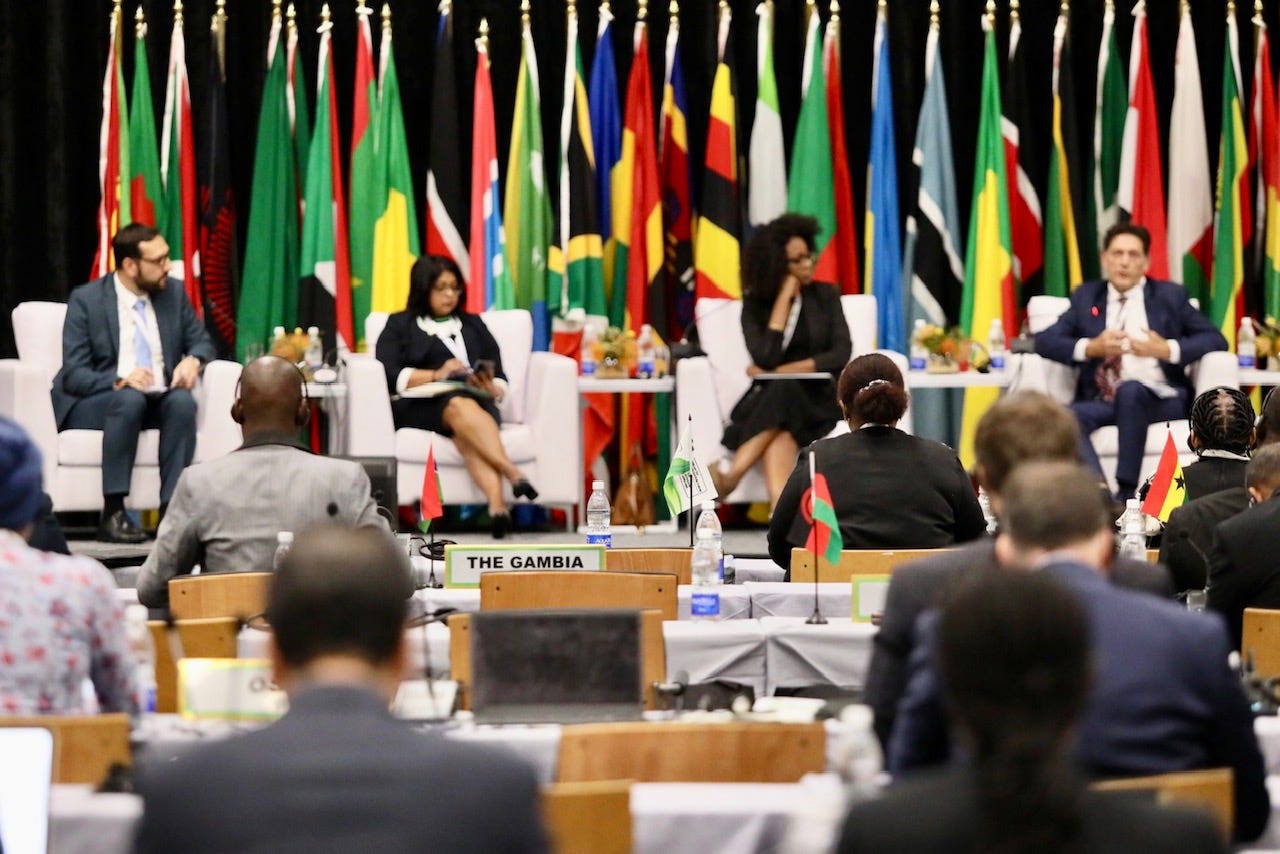Combating Illicit Financial Flows: African Union's Call for International Cooperation
The remedy, according to Dr. Olomo, lies in structural reforms underpinned by sound economic policies.
CAPE TOWN, South Africa — Dr. Patrick Ndzaña Olomo, Acting Head of the Economic Policy and Sustainable Development Division at the African Union Commission (AUC), delivered a compelling presentation on November 2, 2023, at the ATAF Annual Meetings in Cape Town, South Africa, writes Winston Mwale.
Dr. Olomo's talk, titled "Strengthening International Cooperation: A United Front Against Illicit Financial Flows (IFFs)," shed light on a pressing global issue and called for collaborative efforts to tackle it.
Addressing a Global Challenge
Dr. Olomo began his presentation by acknowledging the daunting economic challenges that have arisen since the onset of the COVID-19 pandemic. He noted the far-reaching impact of these difficulties, which have affected nations worldwide.
In particular, Africa has not been immune to the economic consequences of the pandemic, placing hard-fought gains in poverty reduction and inequality mitigation at risk.
The remedy, according to Dr. Olomo, lies in structural reforms underpinned by sound economic policies.
He highlighted the African Continental Free Trade Area (AfCFTA) as a pivotal framework for channelling investments into key sectors such as agriculture, industry, and services.
The effective fight against IFFs, he argued, provides a unique opportunity to leverage domestic resources strategically and ensure long-term sustainable recovery.
Simultaneous Crises Amplify Africa's Financial Needs
Dr. Olomo outlined three parallel global crises that are compounding Africa's financial requirements:
1. Macroeconomic Performance: Africa's long-term growth has been characterized by volatility and insufficient structural transformation. This lack of transformation has left African economies vulnerable to external and internal shocks.
2. Fiscal Position: Over the past thirty years, the average fiscal deficit in Africa has expanded by 2.1 percentage points, surging from 3.1 percent of GDP in 1990-1999 to 5.2 percent of GDP in 2020-2022.
3. Impact of COVID-19: The COVID-19 pandemic has taken a toll on Africa's economic growth. Dr. Olomo pointed out a significant economic contraction that occurred due to both global slowdown and domestic factors. Notably, a group of African countries experienced a 64% GDP contraction in the second quarter of 2020.
African Financing Conditions on the Decline
Dr. Olomo underscored the deteriorating financing conditions in Africa, which were already concerning even before the pandemic.
Africa's share of global trade, standing at less than 3% before the pandemic, has prompted the need for African nations to address these challenges urgently.
Charting the Path Forward
The presentation focused on addressing Africa's USD 194 billion annual sustainable financing gap through specific actions:
1. Developing Regional Value Chains: Accelerating Africa's productive transformation is essential by promoting labor rights, securing labor welfare, addressing global skills gaps, and nurturing inclusive agricultural value chains and food systems.
2. Intra-African Investment Growth: Encouraging increased investment within Africa can foster job creation and regional integration. Diversification opportunities through export-led growth were highlighted.
3. Infrastructure, Energy, and Human Capital Development: Dr. Olomo advocated prioritizing investments in infrastructure, energy, and human capital development. Regional development corridors and cross-border special economic zones are pivotal in attracting sustainable investments.
4. Strengthening the Role of the Private Sector: The capacity of the private sector to drive economic transformation must be harnessed to promote Africa's industrialization.
5. Developmental State: Leadership and vision from the state are vital in reducing Africa's reliance on primary commodity exports.
In conclusion, Dr. Olomo emphasised that structural and productive transformation are critical for Africa's growth.
This involves adding value to Africa's agricultural and raw materials and increasing participation in global value chains.
His presentation urged international cooperation to address the challenges and secure Africa's economic recovery and long-term sustainable growth.




